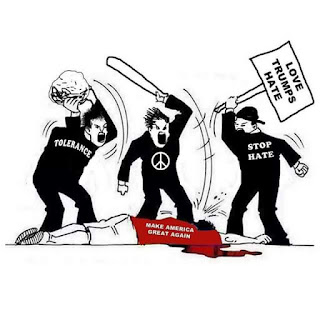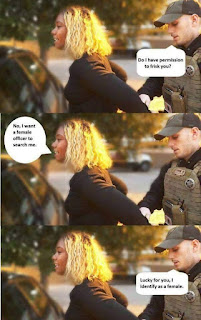Spain dissolves Catalan parliament, moves to seize control of region https://t.co/XotPAx7g8Z— Capital Journal (@WSJPolitics) October 27, 2017
The Wall Street Journal
written by Jeannette Neumann and Marina Force
Friday October 27, 2017
BARCELONA — The Spanish government dissolved Catalonia’s parliament, ordered the region’s leaders to step down and set new legislative elections for Dec. 21 after lawmakers there declared an independent republic, setting up the potential for new clashes.
In taking those steps, Prime Minister Mariano Rajoy invoked emergency powers granted to him by Spain’s Senate, which earlier in the day approved a never-used constitutional provision.
The tensions between Madrid and the Catalan separatists now risk spilling over into the streets, with pro-independence forces pledging mass demonstrations and even civil disobedience as Mr. Rajoy vows to subdue the independence drive.
Mr. Rajoy didn’t elaborate on how the central government would ensure that Catalan separatist leaders, who have repeatedly flouted Spanish authorities, would step down from their positions. Prosecutors in Madrid could still order their arrests.
Officials in Spain’s ministries will take over the responsibilities of Catalan agencies, including the regional police force. Regional parliamentary elections will be held in December and new leaders elected. The premier also said he would take the Catalan parliament’s proclamation of independence to Spain’s top constitutional court.
“We are living a sad day in which irrationality has trumped the law and demolished democracy in Catalonia,” Mr. Rajoy said in televised remarks.
Earlier Friday, separatist lawmakers used a secret vote to approve the independence declaration, signaling concern that they could face arrest for flouting Spanish law by proclaiming a split with Spain.
Fifty-two opposition lawmakers abandoned the parliament in protest at what they branded a democratic farce, a direct attack on Spain’s constitution and an affront to Catalans who don’t support secession. Of those who remained, 70 voted in favor of independence and 10 against, while two lawmakers voted in blank.
Pro-independence protesters gathered outside the regional parliament in central Barcelona broke out into cheers when the parliamentary vote was announced. Separatist lawmakers began to sing the Catalan anthem. Soon after the vote, about 20,000 people had gathered in central Barcelona in support of independence.
“Today the legitimate parliament of our country […] has taken a long-awaited and long-fought step,” Carles Puigdemont, Catalonia’s president and leader of the separatists, said after the vote.
Catalonia’s secessionist movement has simmered for decades, but has grown in recent years due to grievances about the amount of tax revenue the wealthy region sends to Madrid and over complaints that Madrid suppresses its distinct language and culture.
The separatist legislators said Catalan voters gave them a mandate for the declaration in an Oct. 1 referendum on independence. Catalan authorities say around two million voters cast ballots and that the vast majority voted in favor of secession. However, opposition parties boycotted the vote and a top Spanish court suspended the ballot. The vote was also marred by clashes with the police.
Given that the Spanish constitution doesn’t allow for the unilateral secession of any of the country’s regions, Friday’s declaration is symbolic. Immediately after the vote, Mr. Rajoy took to Twitter to call for calm, pledging that “the rule of law will restore legality in Catalonia.”
Foreign leaders quickly reiterated their support for Madrid in the standoff. “For [the] EU nothing changes,” European Council President Donald Tusk said on Twitter after Catalan separatists’ vote. “Spain remains our only interlocutor.”
The U.S. State Department said that Washington “supports the Spanish government’s constitutional measures to keep Spain strong and united.”
The prime minister has already stationed at least an additional 6,000 police officers in Catalonia, according to union representatives, in a sign the central government is worried about how it will impose direct rule on the ground and whether Catalonia’s 17,000-strong regional police, the Mossos d’Esquadra, will follow Madrid’s orders.
“If the Mossos sides with pro-independence supporters, then the risk of an even more serious escalation of this crisis would increase,” said Stephen Brown, an economist at Capital Economics in London. Mossos spokespeople have said in recent days that the force is awaiting details on the powers Madrid will assume.
One risk is of clashes between Spanish police and protesters who have promised to protect Catalan government institutions in a bid to prevent Madrid from removing Catalan officials. The tensions could also escalate if Spanish prosecutors order the arrests of the separatist leaders, something pro-independence forces have vowed to prevent.
Separatists’ strategy has been to “trigger an overreaction by the central government” to force the EU to intervene and to keep support for independence strong in the streets, wrote Antonio Barroso, a Spanish political analyst at Teneo Intelligence, a consulting firm, in a research note Friday.
Catalan National Assembly, an influential pro-independence organization, on Friday published a statement recommending that civil servants in Catalonia “don’t have to comply with the orders from someone who invokes (direct rule)…because they are clearly unlawful measures.”
Francesc Rovira, an 80-year-old who lives in Barcelona and voted in favor of secession in the Oct. 1 ballot, participated in a demonstration in front of the Catalan assembly Friday. He has pledged to continue to protest in the coming days.
Mr. Rajoy’s “Popular Party wants to humiliate us, clamp down on us,” he says. He will do “whatever it takes.”
Spanish stocks and bonds fell after the declaration. Spain’s IBEX-35 stock-market index dropped 1.9% on the day, while yields on Spanish government debt rose. While Spanish securities have underperformed in recent weeks due to the crisis, losses have been contained due to investors’ faith that a solution to the crisis will be found.
I ADDED TWEET's BELOW after posting this:
I ADDED TWEET's BELOW after posting this:
Enrique Pena Nieto said, “We hope for a political and peaceful solution.” https://t.co/W5Dzy9Vjx5— The Indian Express (@IndianExpress) October 28, 2017
— DhakaTribune (@DhakaTribune) October 28, 2017
Catalonia's disputed president wants Catalans to oppose Spain's takeover of the region peacefully. https://t.co/BSA70V5qmS— GlobalAwareness101 (@Mononoke__Hime) October 28, 2017






































No comments:
Post a Comment